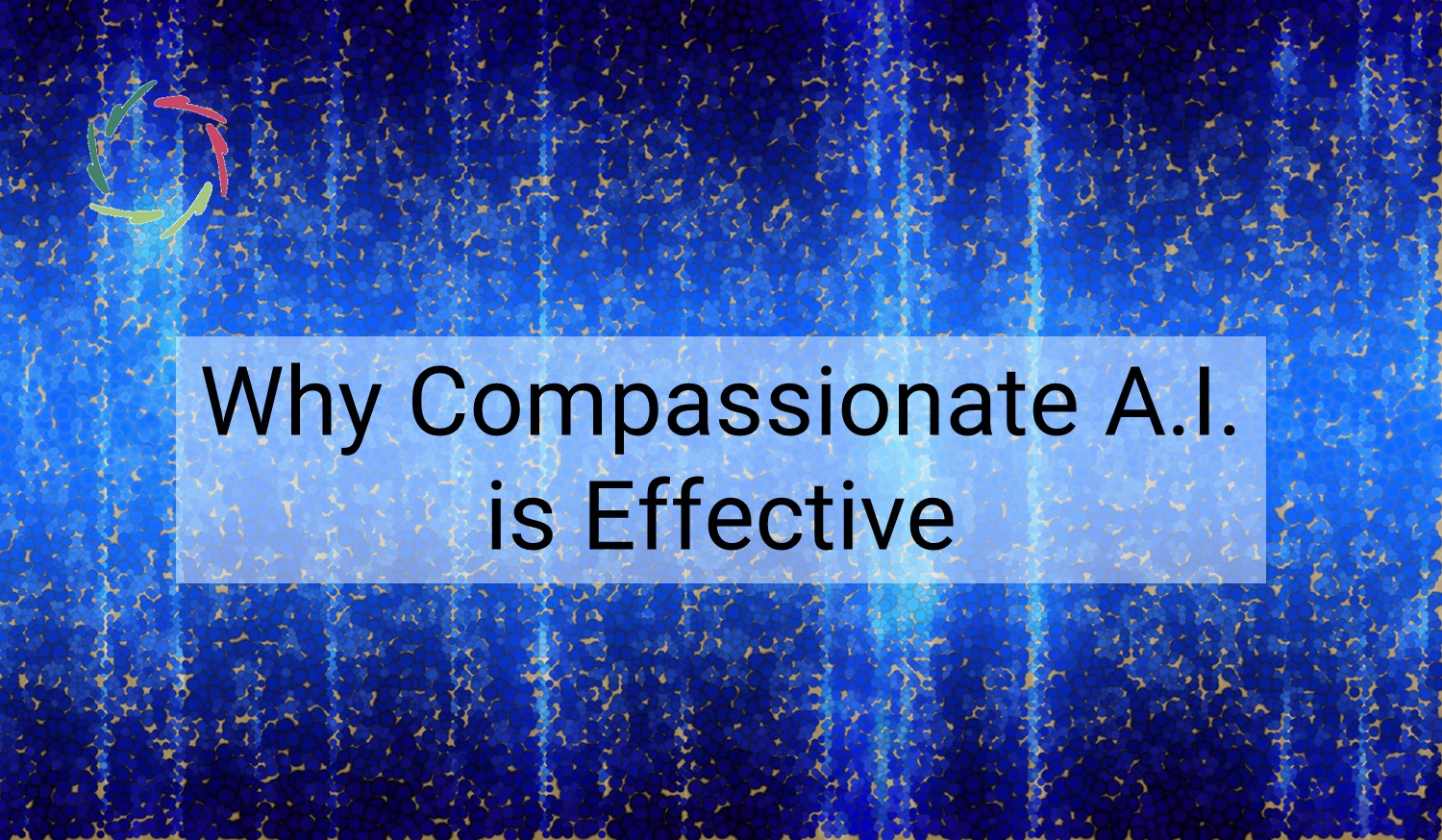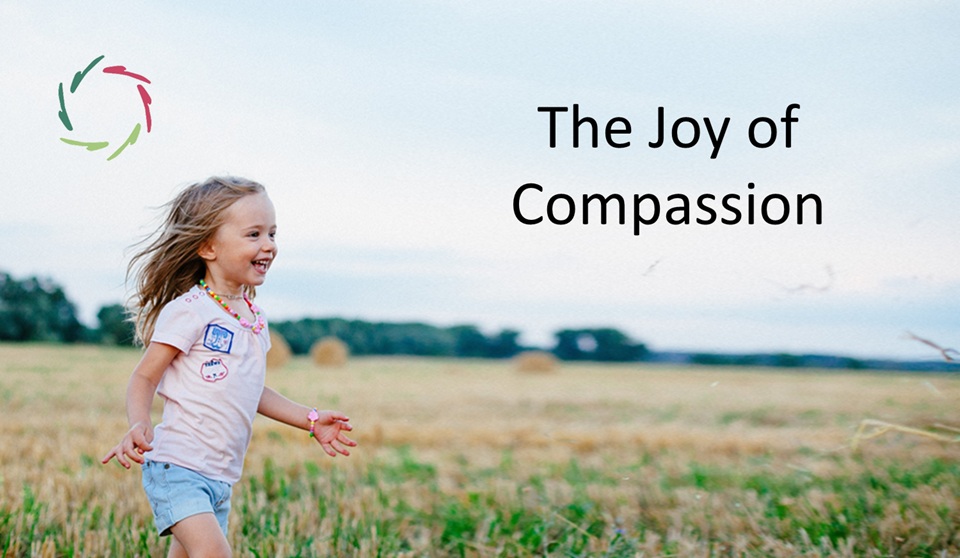25. COVID Compassion – Healing Individuals and Society

In a socially challenging period, human traits may come out intensified. Hopefully, in this corona pandemic, Compassion will prevail.
►►► WHY read this? Compassion is a strong answer to many COVID-related issues. Can it be your answer too? ◄◄◄
Compassion is not ’empathy.’
Apart from terminological issues [see: “Landscape of Empathy”], empathy can be narrow or broad. Empathy for only-the-own-bubble may thwart broad empathy. This way, it may be a source of us-versus-them feelings: ‘Us’ needs protection against ‘them, the enemy.’
On feelings of anxiety and frustration, such empathy may evolve towards aggression. That is not Compassion. It may also lead to an increasing short-sightedness, like ‘sticking one’s head in the sand’ until one’s head is lost, including possibly that of some other() in the small bubble. That is also not Compassion. Please, don’t make such a mistake.
Neither is Compassion opposed to empathy. Empathy is a necessary but insufficient characteristic of Compassion. Sorry for the theory. Some more will pass in order to understand the present situation.
Compassion looks at world-numbers not only as numbers.
The present situation
is one in which Compassion is central. Worldwide, far-reaching and necessary decisions profoundly depend on it. Actually, they always do, but it happens more openly now and with starkly direct consequences for different groups. The following are a few examples.
The elderly
are specifically vulnerable to the disease, and to head-on loneliness. On top of that, to the dying in solitude, quarantined one way or another.
Also, according to studies, more than 90% of deaths are people > 65 years of age. Thus, COVID-19 is sometimes described as a ‘disease of the elderly’ as if it’s, therefore, less important.
They need our Compassion.
Youth
have other vulnerabilities, not so much to the disease, but to being kept from their peers, and to experiencing difficulties in social, mental, and educational development. On top of that, they cannot readily talk about it face-to-face.
Also, they will pay for the expenses being made to ‘save the economy.’ With a continuing pandemic, they may do so for a very long time.
They need our Compassion.
Those suffering economically
Losing one’s income, seeing one’s lifework going down or even down the drain, losing one’s home, one’s self-worth, one’s dreams, one’s sense of being responsible, and ‘doing the proper thing.’ This multifaceted suffering is diverse and different in different parts of the world.
It can make a broader kind of empathy difficult. Generally, stress makes one’s empathic vision narrower. In collective and tremendous stress, with borders of the discomfort zone getting nearer, frustrations may mount.
They need our Compassion.
But what’s in it to say that “we just have to live with the virus” as if that’s a fact? That would be the most terrible, inhuman mistake!
“But for the sake of the economy, we need to…” But for the sake of what would we need such an economy? Please enlighten me with something meaningful, something deeper than the tapestry on the wall. Without a wall, the tapestry is just a miserable heap of wrinkled paper.
Increasingly
We are heading towards a coronated autumn and winter. Several factors make the situation worse. People are more vulnerable than before through psychological and economic hurt. Additionally, the virus will hit harder in its preferred season – winter – in Europe and the US.
Unfortunately, people didn’t miraculously become more Compassionate in the last few months. On the contrary, they have become less patient, more fed-up and burned-out, more stressed generally. There is seemingly less Compassion around. That’s bad for the immune system and for how people behave socially.
In my view, we need Compassion more than ever.
Compassion, not an easy concept!
The capital ‘C’ denotes that the subconceptual level is intrinsic to Compassion. It is also essential to human intelligence and consciousness. With ‘subconceptual’ [see: “About ‘Subconceptual’”], I indicate +/- nonconscious mental, meaningful processing as it is being uncovered through highest-level scientific research in the cognitive neuroscience domain. In my book Your Mind as Cure, I show that insight into this level is necessary to understand how we can get ill through the mind and cured through the mind.
Rationality consists of reckoning with the conceptual as well as the subconceptual level. Taking into account only one of them is unscientific. To understand Compassion, we also need both. There is no Compassion without at least a substantial openness towards rationality.
Not egoism, nor altruism.
Compassion transcends both. It may make one ‘feel good’ when doing good for someone else. That is not being foolish. It is about being ethical. It’s self-orientedness without losing sight of the other, and other-orientedness without losing sight of oneself. This may be understood mainly at the conceptual level while being realized at the subconceptual level.
No more theory, I promise → back to COVID.
Why we need COVID Compassion
We cannot leave any people behind. As said, my list of three groups is meant as a working tool. One might also see different races, sexes, classes, parts of the world, subcultures, religions. The principles of Compassion are always the same. Eventually, there is only one group involved in COVID: the human group (and some bats). But without Compassion, people will not continue abiding with the rules. One can see ample examples of this already.
We need Compassion because it’s ethical, as well as the most efficient way. Without Compassion, we need rules to make sure that different groups don’t turn against each other.
We need to take care of retired people, working people, and youth, even if it doesn’t appear to be possible. Many measures have to be taken for the good of one group, that are apparently bad for another. Think of lockdown. In competition, any measure can engender resistance. Imposing rules is an element within this competition. Face masks or no face masks? Who gets the power to impose the rules and coerce others to follow them? Who will abandon these rules en masse? Who already knows they will do so? Do you call that efficient?!
Not me.
First Compassion, then rules
In other words: true leadership. This doesn’t mean that rules are less important. It implies that Compassion is crucial. Compassion comes first. It may be thought of without rules. Rules may not, in any sensible way, be thought of without Compassion.
Thus, if one brings rules in sensitive COVID situations, it should be done from a basis of Compassion. Not rules as being about the rules themselves, or out of ‘being the expert’ as if that is ever enough. We all need to be experts in being human. In every discussion and communication about why some rule is required, Compassion should be deeply present. Otherwise, as we see time and again, the communication may eventually be counter-productive.
COVID, this way, can become a daily exercise in Compassion. This may be the only way to keep going. It motivates. It makes people stronger to continue abiding by the rules. It makes people less anxious, less stressed, thus better equipped also personally to overcome the virus itself.
Not simple
One might think this is just a thing to do. Contrary to this, Compassion is a challenging process of growth. It’s never finished. Every Compassionate experience may add to it, like a mature art that still continuously gets better. As said, this is why true leadership is crucial and may save many lives. True leadership is Compassionate. A true leader is always growing into this kind of leadership.
When one thinks there’s a short way, there’s certainly a long way ahead.
Compassion and mental aftermath
We already see much mental suffering, of which much is not officially recognized at present. There will undoubtedly be more loneliness, guilt, mourning, anxiety, loneliness again, depression. Stress of all sorts.
Compassion brings people profoundly together. It also brings one closer to oneself, leading to inner strength and resilience. It leads to inner growth. It starts from who one is and can become, whether young, middle-aged, or old. Mental distress doesn’t come so much from circumstances, as from interpretations of the circumstances. How they are remembered; how they are integrated or precisely not into broader schemes that one builds up as meaningful mental landscapes in which to explore a full life. Compassion has a huge influence on such interpretations, personally and interpersonally. Compassion makes them deeper and stronger, more open, more respectful.
Without this, one can get genuinely lonely and distressed.
Much suffering can be alleviated
through Compassion not as the source of action but as the action itself: the feeling Compassion, the being Compassionate.
This doesn’t mean that bread is simply unimportant. Without bread, one dies. But without poetry – the poetic or ‘subconceptual’ or Compassionate side of the human being – one is dead already. We should take care of both.
This way, the different needs of different groups can be met in-depth, even if it seems impossible if one looks only at the surface. People are not mere surfaces. They are, always and everywhere, complete human beings. They need to be seen as such. This may be wondrous, even incomprehensible if looked at from the surface, yet the most profound need of any human being is to be seen in totality. A ton of superficial attention is not worth one gram of deep attention. Another word for the latter is Compassion.
This insight is becoming more and more urgently needed.


